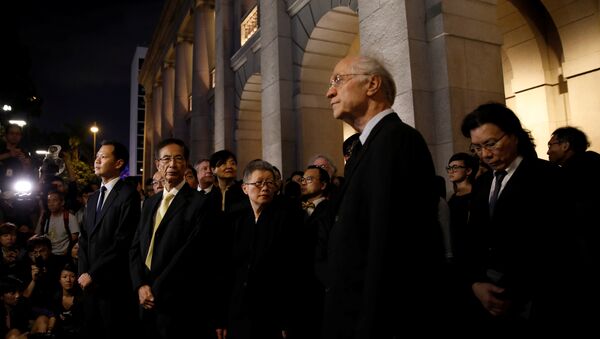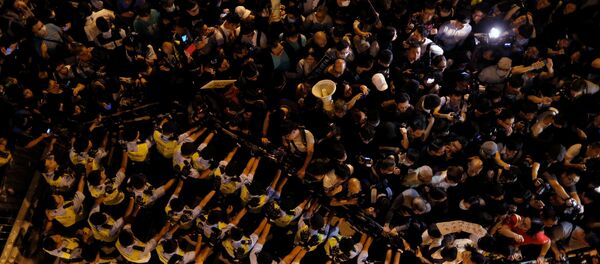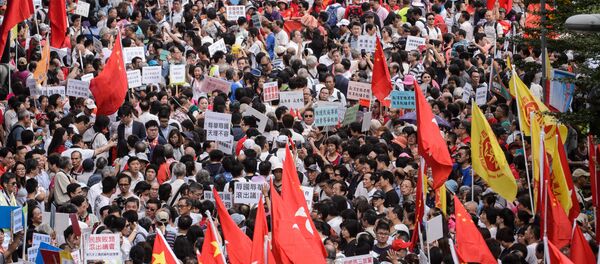"They think that by … taking away people’s rights [to take office] then Hong Kong people will become silent. But it doesn’t work like that. The more severe the attack, the more repression there is, very often the reaction goes stronger, particularly among young people," Audrey Eu, a pro-democracy politician who joined the parade, said as cited by The Guardian.
The protest was called for by pro-democracy groups who wrote ads in local newspapers. Later in the afternoon, hundreds of activists and lawyers gathered outside the high court to begin their silent march to protest against Beijing "destroying the rule of law" in Hong Kong.
The move angered Beijing who replied by issuing a legal interpretation of Hong Kong's constitution in order to prevent the two young politicians from joining the parliament in what was perceived by many as the most direct intervention by Beijing in the semi-autonomous city.
China gained sovereignty over Hong Kong in 1997 and over Macau in 1999. Both administrative regions were granted legal, economic and political autonomy from Beijing under the "one country, two systems" principle formulated by Chairman of the Central Advisory Commission of the Communist Party of China Deng Xiaoping in the early 1980s.




